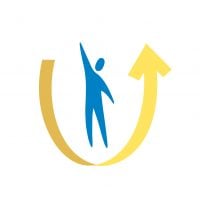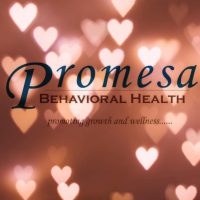Turning Point - Residential Reentry Center in Fresno, CA
Turning Point in Fresno, CA helps federal offenders reintegrate into society through drug programs, life skills training, and support for family reunification.
About Turning Point - Residential Reentry Center
Turning Point - Residential Reentry Center in Fresno, CA, focuses on aiding federal offenders in their reintegration into society. This co-ed facility houses 40 inmates and supervises over 20 residents on home confinement. Unique aspects include drug abuse programs, life skills training, and family visitation.
The mission at Turning Point aligns with the Federal Bureau of Prisons: to protect society while providing self-improvement opportunities. They aim to foster positive qualities, helping individuals become productive, healthy members of society.
- Offers on-site drug abuse programs with weekly groups for RDAP participants.
- Provides life skills and transitional groups for non-program participants.
- Encourages participation in community-based support and religious services.
- Supports family reunification and offers counseling services during reentry.
Turning Point specializes in treating those nearing release from federal incarceration. Services largely benefit inmates and former offenders seeking a structured path to reintegration.
- 2+ Accreditations
- SAMHSA Listed
- 10 Conditions Treated
- Insurance Accepted
- 5 Levels of Care
- Speaks English
- 22 Therapies & Programs
- Multiple Locations
Accreditations
SAMHSA

CARF
The Commission on Accreditation of Rehabilitation Facilities (CARF) is a non-profit organization that specifically accredits rehab organizations. Founded in 1966, CARF's, mission is to help service providers like rehab facilities maintain high standards of care.
Staff
- Jason MeekExecutive DirectorExecutive Director at Turning Point Foundation
- Kalie MatisekClinical DirectorClinical Director at Turning Point Foundation
- Becky SpringProgram Manager of Residential Care FacilitiesManages Thompson Place and Oak Place
- Tyler NashRehab & Peer Services Program ManagerManages New Visions, Oxnard Clubhouse, Wellness Center, RISE & Mobile Wellness
- Angel EcheverriaProgram Manager of Veterans Transitional HousingManages Veterans Transitional Housing
- Josh CarsmanMarketing, Events, Fund DevelopmentHandles marketing, events, and fund development
Conditions and Issues Treated
Substance Abuse + Addiction Treatment
Substance abuse typically leads to addiction, which requires specialized treatment programs at Turning Point - Residential Reentry Center to address. Many people benefit from inpatient drug rehabilitation, which includes inpatient acute care and residential rehabilitation. Other levels of care include intensive outpatient therapy, individual counseling, and support groups. Family therapy is also an essential part of treatment for substance abuse.
A combination of treatments is often needed to treat drug abuse issues effectively. In the case of drug abuse, there is no easy answer or one-size-fits-all cure.
Opioid + Opiate Addiction Treatment in Fresno, CA
Opioid addiction treatment helps people addicted to opioids in California curb their drug use. The selection of a treatment setting depends on the severity of the addiction. Mild cases are usually treated in outpatient facilities; severe cases need hospitalization or treatment in a residential facility. Doctors use medicines along with counseling and behavioral therapies to treat the addiction. The treatment includes medication, counseling and therapy. It can also include group counseling, individual counseling and family counseling.
Levels of Care
This center offers a variety of custom treatment tailored to individual recovery. Currently available are Aftercare Support, Drug Rehab, Inpatient, Outpatient, Residential, with additional therapies available as listed below.
Inpatient rehab means living at the Fresno, CA facility while all aspects of an addiction or co-occurring disorder get addressed. This helps limit the distractions and increase the focus on recovery. Typical inpatient rehab stays are approximately one month long.
Outpatient treatment plans cover diagnosis, detoxification, management, and counseling. They are a popular option for those who have graduated from inpatient facilities. Services in California include medication-assisted treatment (MAT) and individual and group therapy.
Residential treatment programs are those that offer housing and meals in addition to substance abuse treatment. Rehab facilities that offer residential treatment allow patients to focus solely on recovery, in an environment totally separate from their lives. Some rehab centers specialize in short-term residential treatment (a few days to a week or two), while others solely provide treatment on a long-term basis (several weeks to months). Some offer both, and tailor treatment to the patient’s individual requirements.
After treatment, addiction treatment can be frightening for newly sober people. Aftercare support provided by Turning Point - Residential Reentry Center is designed to give resources and help on a continued basis. It can involve finding housing in and around California, setting up 12-step meeting groups, continued medical monitoring, and counseling.
Therapies & Programs
Family therapy is a set of therapeutic approaches that assumes that the entire family is a system. It utilizes the strengths and resources of the family to help the patient refrain from resorting to substance abuse. The impact of substance abuse is not just on the patient but on the entire family. Family therapy ensures that the patient gets adequate support from the family members after the treatment making the recovery process sustainable
- Family therapy guides all the members of the family to help the patient.
- It helps to repair relationships and improve communication between family members.
- It helps to keep the patient engaged and motivated throughout the treatment.
Group therapy is an important tool in recovery. Finding a peer group in Fresno, CA and others who relate to your situation is a fundamental tool for recovery at Turning Point - Residential Reentry Center. Addiction tends to lead to isolation and feelings of uniqueness. The accountability and friendship that is found in group therapy can be more effective than any single other treatment approach. This is generally introduced early in recovery and is recommended as a lifetime treatment habit.
Trauma therapy is a way of addressing trauma while in a safe situation in order to heal. This may involve Turning Point - Residential Reentry Center managing individual or group counseling or both. Other forms of therapy have been proven to assist in healing past traumas.
A type of cognitive-behavioral therapy is Dialectical Behavioral Therapy. It is intended for those who are vulnerable to self-harm and suicidal thoughts. Turning Point - Residential Reentry Center aims to help patients understand the connection between their feelings, emotions, and behaviors and provide them with the tools to make a difference in Fresno, CA. For those whose addictions and habits originate from severe mental health problems, it is beneficial.
Negative feelings are common in substance abuse disorders. If not recognized, they can cause co-occurring disorders. CBT involves strategies that help to change the thinking and behavioral pattern. It can be administered as a monotherapy as well as a part of combination therapy.
Rational Emotive Behavioral Therapy (REBT) is a variation of Cognitive Behavioral Therapy (CBT) that helps people understand how maladaptive, negative, and habitual thoughts and feelings lead to bad life choices. REBT is based on the idea that people operate under many irrational but habitual patterns of thought that fuel harmful practices.
Rehabilitation is not just limited to bringing an individual out of addiction and achieving sobriety. It is considered complete only when an individual starts leading a normal and balanced life. Life skill therapy focuses on the various skills that help an individual to lead a normal life. Patients often do not take care of themselves, struggle professionally, and withdraw from social interaction due to addiction’s physical and emotional disturbances.
Life skills therapy helps people in California improve various personal, professional, and social skills such as cooking healthy meals, maintaining proper hygiene, budgeting, decision-making, time management, regulation of emotions, and effectively resolving interpersonal conflicts.
The first three steps depend on the patient, so they are more specific and situational. The succeeding four steps center on practical issues brought on by substance abuse. Steps 8 and 9 deal with the social and emotional repercussions of addiction, encouraging patients to make amends to people they have wronged. These are followed by two steps revolving around the further exploration and reinforcement of Steps 1 to 9.
The last step requires an individual to extend a helping hand to people who are still in the early stages of their recovery.
Payment Options
For specific insurance or payment methods please contact us.
Is your insurance accepted?
Ask an expert, call (888) 674-0062
Location & Contact
3547 S Golden State Blvd
Fresno, CA 93725
Phone Number
(559) 442-8075
Additional Locations
- Turning Point in Fresno, CA
- Turning Point - Central CA Outpatient in Bakersfield, CA
- Turning Point - West Prospect Road in Fort Collins, CO
- Turning Point - Pine Tree Gardens in Davis, CA
- Turning Point - South Mathews Street in Fort Collins, CO
Learn More About Turning Point Community Programs
Patient Reviews
There are no reviews yet. Be the first one to write one.
Fresno, California Addiction and Treatment
More than 3 million of California's citizens are addicted to illegal drugs. Almost 800,000 people use hard drugs, almost 5 million use marijuana, and another 2.1 million abuse alcohol every year. Other substance abuse issues such as binge drinking and teen drug use are also common. Many illegal drugs such as cocaine, heroin, methamphetamine, and marijuana are smuggled into the state from Mexico.
Fresno, located in central California, offers a variety of outdoor activities, cultural attractions, and a vibrant arts scene. With its supportive environment, Fresno provides an ideal setting for those seeking drug rehab treatment. However, the city has experienced a significant increase in opioid-related deaths, with a 45.6% rise from 2019 to 2020. Fentanyl was the primary drug responsible for overdose deaths in Fresno County in 2020, and the county had a higher rate of overdose deaths compared to the state average.
Treatment in Nearby Cities
- Temecula, CA (265.0 mi.)
- Fountain Valley, CA (229.2 mi.)
- Colton, CA (226.5 mi.)
- Oakhurst, CA (44.9 mi.)
- Topanga, CA (190.4 mi.)
Centers near Turning Point - Residential Reentry Center
Report Issue Claim Center The facility name, logo and brand are the property and registered trademarks of Turning Point - Residential Reentry Center, and are being used for identification and informational purposes only. Use of these names, logos and brands shall not imply endorsement. RehabNow.org is not affiliated with or sponsored by Turning Point - Residential Reentry Center.



